A senior delegation from the Briuni Institute attended the 12th South Asia Economic Summit (SAES XII), organized by the Institute of Policy Studies of Sri Lanka (IPS) on September 26–27, 2019 in Colombo.
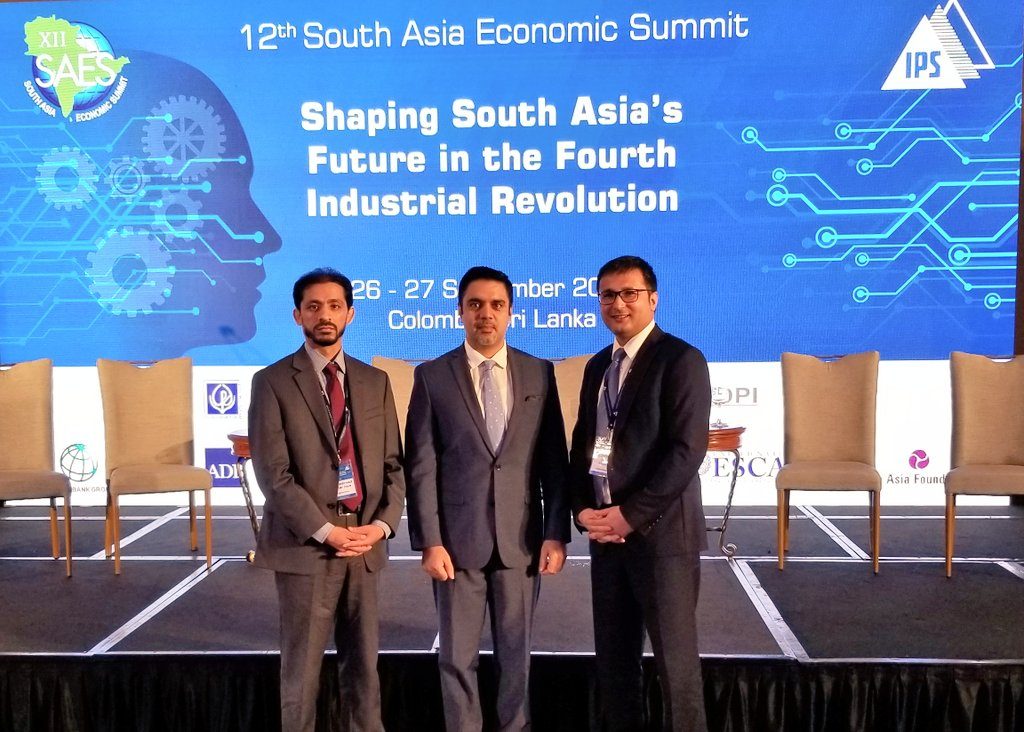
This year’s overarching theme of the Summit was “Shaping South Asia’s Future in the Fourth Industrial Revolution (4IR).” It brought to light a number of key opportunities and challenges facing the South Asian region in the new digital era. Achieving growth, stability, and equity during the 4IR, promoting innovation, and regulating the emerging technologies, were some of the main issues discussed during the Summit.
Speaking at the Summit, Nazir Kabiri, Executive Director of the Biruni Institute, highlighted that while digital transformation could provide fresh opportunities in increasing regional economic growth, Afghanistan equally wants to integrate into the global value chains. He added that the fourth industrial revolution can bring tremendous opportunities for Afghanistan to leapfrog some stages of development, hastening its journey towards becoming a developed economy.
Dr. Omar Joya, Head of Research at Biruni Institute, was invited to speak in the panel discussion on “Macroeconomic Stability for Growth during the 4IR.” Dr. Joya explained how the fourth industrial revolution could pose risks of macroeconomic volatility through pressures for ‘premature de-industrialization’ and reduced economic diversification. He underscored the importance of maintaining diversified structures of production and exports in South Asia in order to ensure macroeconomic stability over the long-run.
Biruni Institute, by actively participating in each year’s round of South Asia Economic Summit, proudly puts Afghanistan on the map for South Asia economic policy debates.
Concluding the two days of SAES, South Asian academics and think tanks expressed hope for a shift in political structure and thinking to move forward with regional integration, which has come to a grinding halt due to regional geopolitical rivalries.
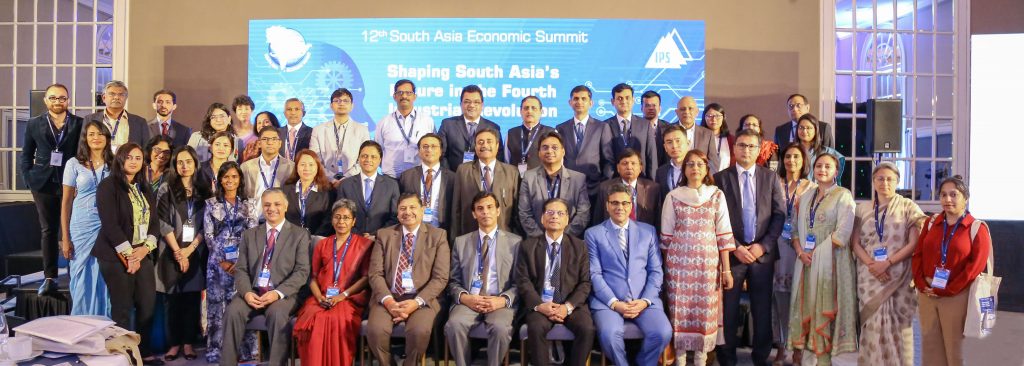
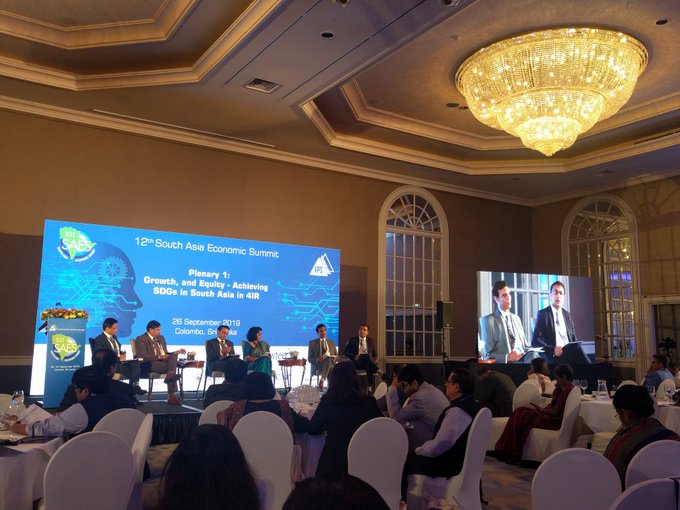
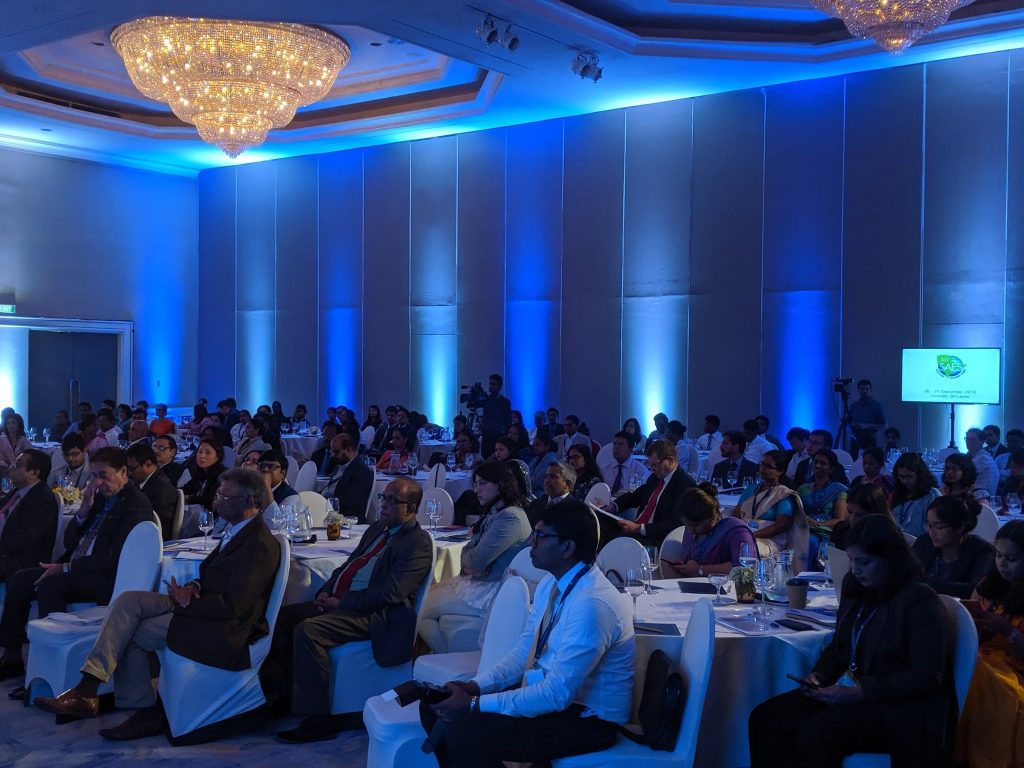
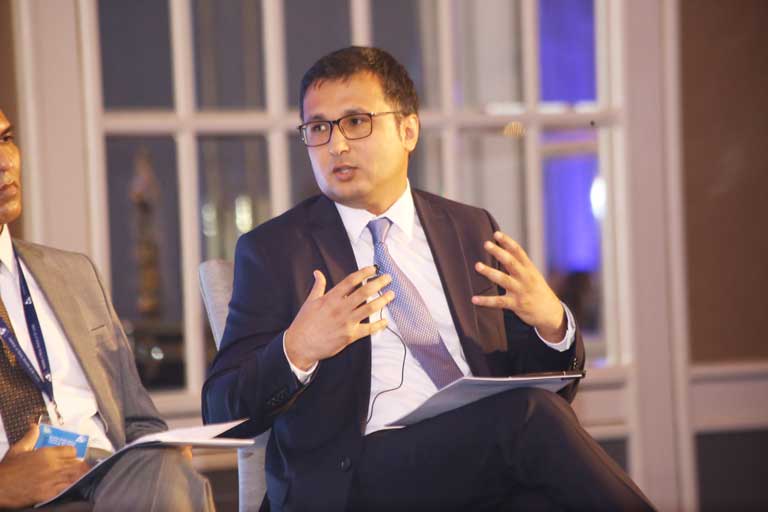
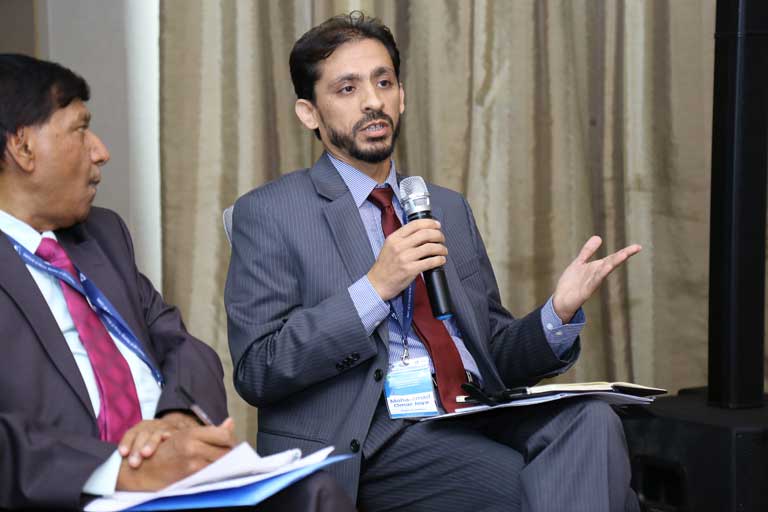
Note:
South Asia Economic Summit (SAES) was launched in 2008. To date, 12 Summits have been held each year in the capitals of South Asian countries. The Summit has provided a regional platform for discussing and debating socio-economic challenges facing the region. SAES also aims to foster and develop regional integration and co-operation among the South Asian countries. Each year, the SAES brings together stakeholders from the government, private sector, research/academic community, donors and civil society from within and outside the region with an interest in South Asia. SAES has evolved into one of the most looked-forward to events in South Asia.



